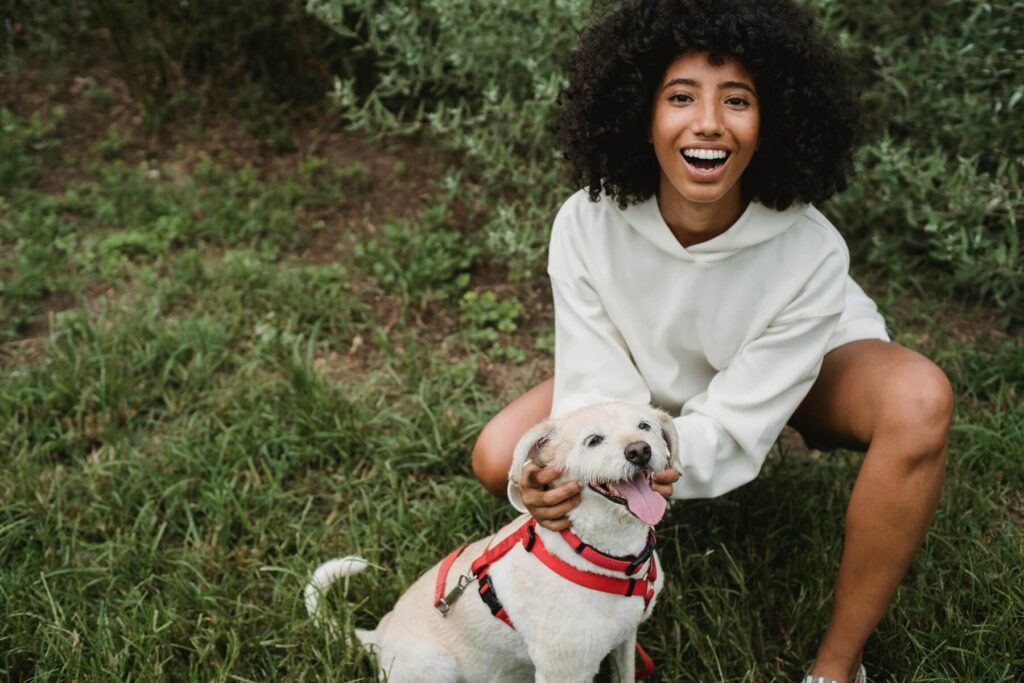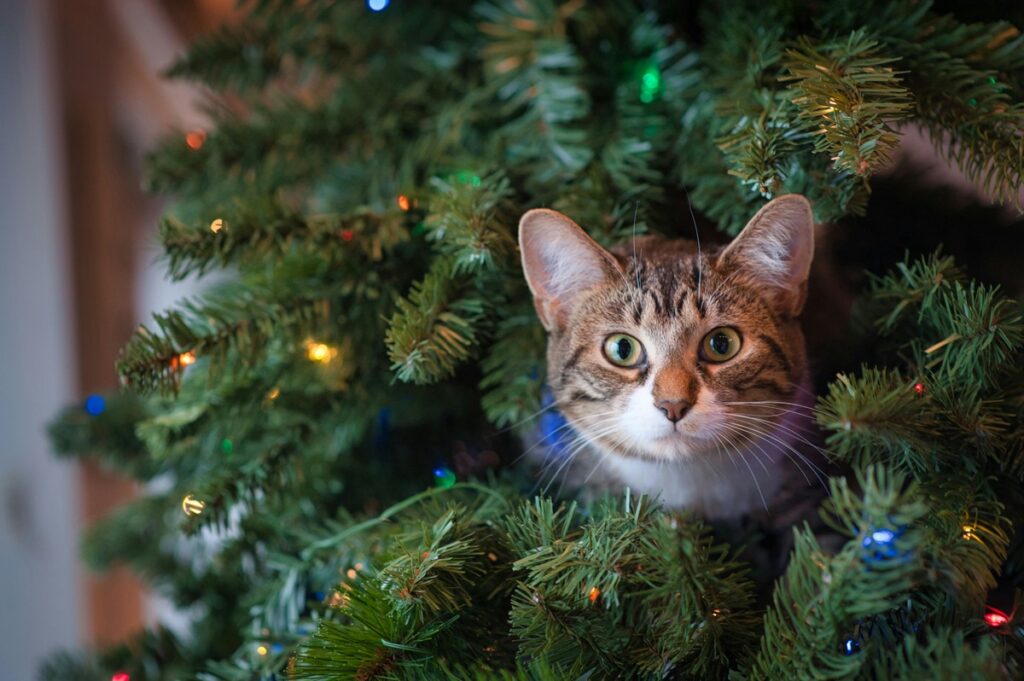
As a cat mom, I know the struggle of those pleading eyes when you’re preparing turkey for dinner. Whether it’s Thanksgiving preparation or just making a weekday sandwich, your furry friend’s longing gaze might have you wondering, “Is turkey safe for cats?” Let’s dive into everything you need to know about feeding turkey to your beloved feline companion.
Understanding Your Cat’s Natural Diet and Turkey’s Role
As cat parents, we need to understand that our feline friends are obligate carnivores. This means their bodies are designed to digest and use nutrients from animal proteins. Turkey, when properly prepared, can be an excellent protein source for cats, containing essential nutrients like:
- High-quality protein for muscle maintenance
- Taurine, an amino acid crucial for heart and eye health
- B vitamins for energy metabolism
- Natural minerals that support overall health
Compared to other meats, turkey is particularly lean and provides similar nutritional benefits to what cats would naturally consume in the wild. This explains why your cat might seem especially interested when you’re handling turkey in the kitchen!
Safe Ways to Feed Turkey to Your Cat
Let’s break down the safest ways to share turkey with your feline friend:
- Preparation Methods
- Always cook turkey thoroughly to eliminate harmful bacteria.
- Internal temperature should reach 165°F (74°C).
- Remove ALL bones before serving.
- Avoid using oils or butter in preparation.
- Skip seasonings completely.
- Portion Guidelines
- Start with small amounts (1-2 small pieces).
- Monitor your cat’s reaction for 24 hours.
- Limit turkey to no more than 10% of daily food intake.
- Serve at room temperature.
- Best Turkey Cuts
- White meat (breast) is ideal.
- Dark meat is okay but higher in fat.
- Avoid skin completely.
- Never feed ground turkey unless specifically prepared for cats.
Understanding Potential Risks and Dangers
As much as we want to treat our cats, we need to be aware of potential hazards:
Seasonings and Additives to Avoid:
- Garlic and onion (highly toxic to cats)
- Salt (can lead to sodium poisoning)
- Pepper (digestive irritant)
- Butter or oils (unnecessary fats)
- Marinades of any kind
Bone-Related Hazards:
- Choking risks
- Internal punctures
- Digestive blockages
- Dental damage
Food Handling Safety Tips:
- Store turkey properly in the refrigerator.
- Don’t leave turkey out for more than 2 hours.
- Use clean utensils and cutting boards.
- Wash hands before and after handling.
When to Avoid Giving Turkey to Your Cat
While turkey can be safe, certain situations call for caution:
Medical Conditions:
- Pancreatitis
- Kidney disease
- Food allergies
- Gastrointestinal sensitivities
Age Considerations:
- Kittens under 12 weeks: Stick to mother’s milk or kitten formula.
- Senior cats: consult with a vet about protein needs.
- Adults: monitor for individual sensitivities
Warning Signs to Watch For:
- Vomiting
- Diarrhea
- Lethargy
- Loss of appetite
- Unusual behavior
Don’t miss out – check it out NOW! 👇
Healthy Turkey Alternatives and Commercial Options
If you’re unsure about feeding fresh turkey, consider these alternatives:
Commercial Cat Foods:
- Turkey-based wet food
- Turkey and chicken combinations
- Turkey pâté formulations
- Turkey-flavored treats
Other Safe Protein Sources:
- Chicken (plain, cooked)
- Fish (cooked, no bones)
- Commercial cat food with various protein sources
- Veterinary-approved protein supplements
Practical Tips for Holiday Turkey Safety
During holiday seasons, follow these additional precautions:
- Create a “safe zone” for your cat away from the kitchen.
- Never feed directly from the table.
- Secure garbage bins containing turkey remnants
- Keep plates and leftover containers out of reach.
- Inform guests not to feed your cat without permission.
FAQs About Cats and Turkey
A: Can cats eat turkey skin? A: No, turkey skin is too fatty and often contains seasonings that can be harmful to cats.
A: Is deli turkey safe for cats? A: Generally no, as deli meat contains high sodium levels and often includes preservatives.
A: How much turkey can I feed my cat? A: Limit turkey to small, bite-sized pieces as an occasional treat, not exceeding 10% of daily food intake.
A: Can cats eat turkey bones? A: Never feed turkey bones to cats, as they pose serious choking and internal injury risks.
Special Considerations for Different Cat Life Stages
Kittens (0-12 months):
- Focus on kitten-specific formulated food.
- Introduce protein sources gradually.
- Consult a vet before adding turkey.
- Monitor for allergic reactions.
Adult Cats (1-7 years):
- Can enjoy moderate amounts of plain turkey.
- Watch portion sizes.
- Maintain a balanced commercial diet.
- Use turkey as an occasional treat.
Senior Cats (7+ years):
- Consider easier-to-digest preparations.
- Monitor protein intake.
- Watch for digestive sensitivities.
- Consult a vet about specific needs.
Emergency Preparedness
Keep these important details handy:
Emergency Contact Information:
- Your regular veterinarian’s number.
- Nearest 24-hour emergency vet clinic.
- ASPCA Animal Poison Control: (888) 426-4435.
- Pet poison helpline: (855) 764-7661.
Signs Requiring Immediate Vet Attention:
- Difficulty breathing.
- Severe vomiting or diarrhea.
- Lethargy or collapse.
- Signs of choking.
- Unusual behavior changes.
Building a Balanced Diet with Turkey
If you decide to incorporate turkey into your cat’s diet, remember:
- Primary Nutrition Should Come From:
- High-quality commercial cat food.
- Age-appropriate formulations.
- Vet-recommended portions.
- Turkey as a Supplement:
- Occasional treat only.
- Small portions.
- Plain, cooked preparation.
- Monitor reactions.
- Balanced Approach:
- Maintain a regular feeding schedule.
- Don’t replace meals with turkey.
- Consider all dietary needs.
- Watch weight maintenance.
Conclusion and Next Steps
As a cat parent, you now have the knowledge to safely incorporate turkey into your feline friend’s diet. Remember these key points:
- Always prepare turkey plain and thoroughly cooked.
- Remove all bones and skin.
- Start with small portions.
- Monitor for any adverse reactions.
- Maintain a balanced overall diet.
- Consult your vet with specific concerns.
Your next steps should include:
- Discussing dietary changes with your veterinarian.
- Preparing a safe turkey portion for testing.
- Monitoring your cat’s reaction.
- Adjusting portions based on results.
- Maintaining detailed feeding records.
Remember, every cat is unique, and what works for one might not work for another. Pay attention to your cat’s individual needs and responses, and always prioritize their health and safety over treats and indulgences.
Have you tried feeding turkey to your cat? Share your experience in the comments below! Don’t forget to bookmark this guide for future reference and sign up for our newsletter for more pet care tips and advice delivered straight to your inbox.
Need more personalized advice? Consult with your veterinarian about incorporating turkey into your cat’s diet, and bring this guide along to discuss specific concerns or questions you may have.
Remember to share this guide with other cat parents who might be wondering about feeding turkey to their feline friends. Together, we can ensure our beloved pets enjoy safe, healthy diets that keep them purring for years to come!
This article contains affiliate links, which means I may earn a commission if you purchase through these links. There is no extra cost to you.
All images on this website are sourced from Free Stock Photos: Pexels. Visit Pexels for more amazing free stock photos.



